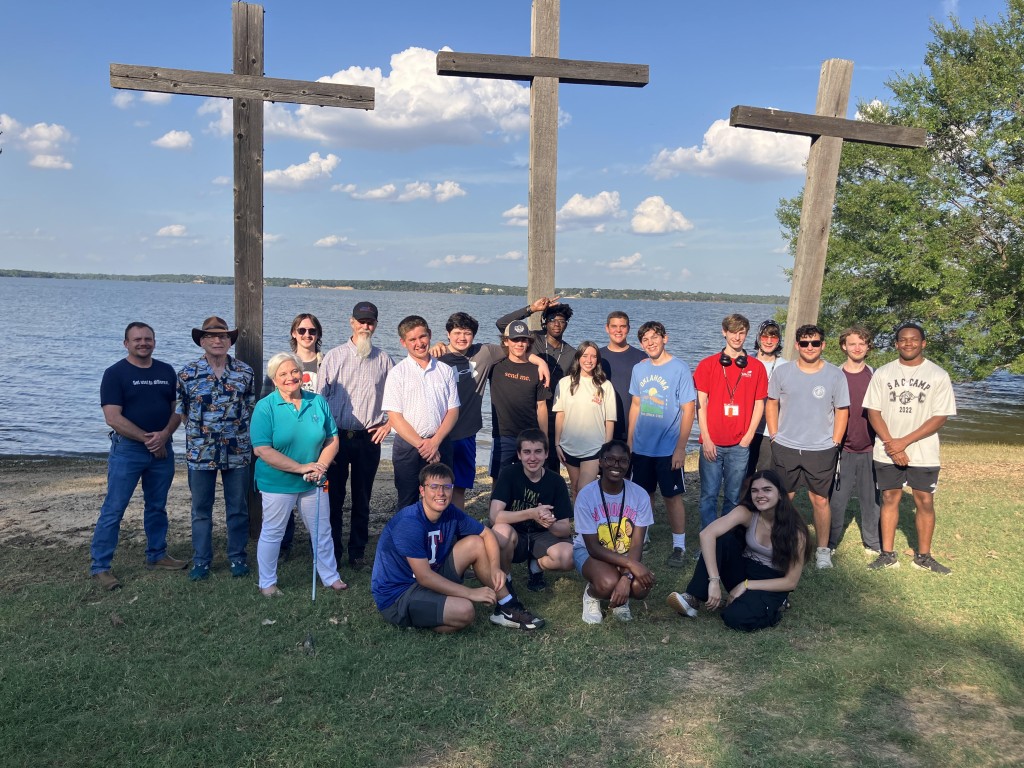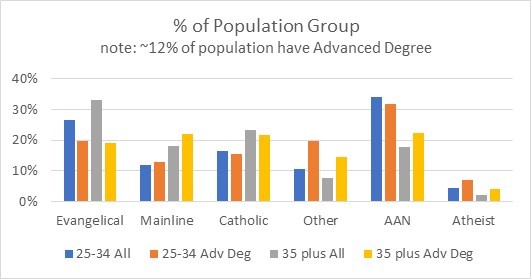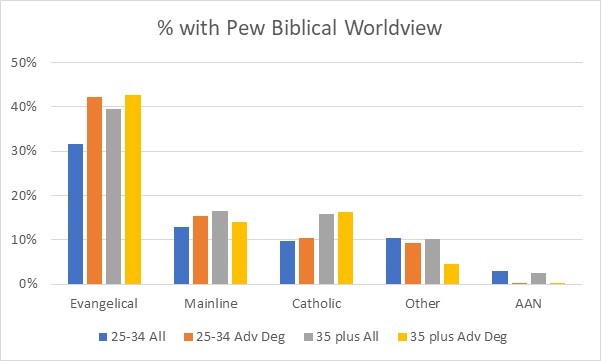The book of Mormon needs to be evaluated by the light of scripture and its purported evidence for its reliability. Dr. Pat Zukeran shows that the bad character of the book’s witnesses, the lack of archaeological support, and internal errors reveal it to be the flawed work of man, not God.
The Mormon Story
Some people believe the Book of Mormon is a new revelation from God given to Joseph Smith. Mormons recognize it as divinely inspired and equal in authority to the Bible, but others have reason to doubt its claims.
Mormon Apostle Orson Pratt wrote in 1851, “The Book of Mormon claims to be a divinely inspired record. . . . This book must be either true or false. . . . If false, it is one of the most cunning, wicked, bold, deep-laid impositions ever planned upon the world, calculated to deceive and ruin millions who will sincerely receive it as the word of God. . . . If true, no one can possibly be saved and reject it; if false, no one can possibly be saved and receive it.”{1}
In this article, we will take a look at internal and external evidences for the Book of Mormon to see if it should be considered inspired writing.
The Book of Mormon is said to be a record of two ancient Jewish civilizations that migrated to America. The Jaredites left Babylonia during the building of the Tower of Babel in approximately 2,250 B.C. After establishing a civilization in America that lasted two thousand years. They eventually succumbed to corruption and apostasy and were judged by God and destroyed.
The second group of Jews left Jerusalem in 600 B.C. before the Babylonian exile during the reign of King Zedekiah. This group crossed the Pacific and landed on the west coast of South America. Lehi and his son Nephi led these righteous Jews. This group eventually divided into two warring camps, the Nephites and the Lamenites and spread throughout North and South America. The Lamenites were cursed with dark skin because of their evil deeds and were the forefathers of the American Indians.{2}
Latter-day Saints believe that during the end of the 4th century A.D. the Nephite prophet general Mormon and his son Moroni, compiled the records of these two civilizations using the Reformed Egyptian language and recorded them on gold plates. Moroni hid the plates in the hills of Cumorah near Palmyra, New York to be revealed at a later time. The Lamenites eventually destroyed the Nephites in 421 A.D. on the Hill Cumorah. The Lamenite civilizations continued to degenerate and had forgotten their Jewish history. When Columbus found them centuries later, they had become as the Book of Mormon describes them, a “filthy and a loathsome people.” (Book of Mormon 5:15)
Does the Book of Mormon qualify as divinely inspired scripture? In determining the answer, we will take a critical look at several key issues. First we will look at the nature in which Joseph Smith received his revelations. Second, we will investigate the character of the author and the key witnesses. Third, since the Book or Mormon claims to be a historical work, we will see if there is evidence to support this claim. Finally, since the Book of Mormon says it is the most perfect book ever written, we will examine it to see if it contains any false precepts. Let’s examine the Book to see if it is an inspired ancient historical record or a nineteenth century product.
Origin of the Book of Mormon
Mormons believe Moroni appeared to Joseph Smith in 1823 as a glorified resurrected being, and delivered to him the golden plates from their hiding place in the Cumorah hills. Using an occult seer stone, Smith translated the history of the Lamenites and Nephites into the Book of Mormon.{3}
In studying the origin of the Book of Mormon, we must first investigate the issue of the canon of scripture. Christians believe the canon is closed with the 66 books of the Bible. There are no more revelations outside these books. Here are some reasons why.
First the authority to write the Holy Scripture was given to the Old Testament prophets of God and the New Testament Apostles of Christ. The last apostle died at the end of the first century A.D. and there has not been anyone who fulfills the qualifications for apostleship since then.
Second, the canon is confirmed to be closed by Judaism, Jesus, the Apostles, and the early church. According to the writings of eye witnesses—Emma Smith (one of Joseph Smith’s wives), William Smith (his brother), and David Whitmer (one of the three key witnesses), Smith used a common occult practice of crystal gazing.
In 1877 David Whitmer wrote,
I will now give you a description of the manner in which the Book of Mormon was translated. Joseph Smith would put the seer stone into a hat, and put his face in the hat, drawing it closely around his face to exclude the light; and in the darkness the spiritual light would shine. A piece of something resembling parchment would appear, and on that appeared the writing. One character at a time would appear, and under it was the interpretation in English. Brother Joseph would read off the English to Oliver Cowdery, who was his principal scribe, and when it was written down and repeated to Brother Joseph to see if it was correct, then it would disappear, and another character with the interpretation would appear. Thus the Book of Mormon was translated by the gift and power of God and not by any power of man.”{4}
Emma Smith wrote to her children, “In writing for your father, I frequently wrote day after day. . . . He sitting with his face buried in his hat, with the stone in it, and dictating hour after hour with nothing between us.”{5} So according to these accounts, Joseph Smith received his revelations word for word and used a seer stone.
By contrast, the Bible was not given to us in a word for word dictation form, nor is there a case of any biblical writer using an occult object to receive revelations from God. Mormons point to the use of the Urim and Thummim but their purpose was quite different. The Urim and Thummim were used for a time by the Aaronic priests only to gain answers of Yes or No from God to particular questions. Lots were cast to discern God’s will, not to receive content for revelation. Finally, we must understand, the Aaronic priesthood and its practices are replaced by the finished work of Christ (Hebrews 7:12). Occult methods, such as crystal gazing, are forbidden in the Bible (Deuteronomy 18:9-14, Leviticus 19:26, 31). Mormon theologian Bruce McConkie even denounces using objects to gain new revelation. He condemns Hiram Page, one of the witnesses of the Book of Mormon for using a seer stone to gain new revelations. Joseph Smith obtained his revelations contrary to the method of inspiration received by the biblical Prophets and Apostles.
Character of the 11 Witnesses
Joseph Smith claims that after he translated the plates, he returned them to the angel Moroni. Therefore, there is no way to verify the veracity of the plates or Smith’s translation. Smith’s only defense of his account is the eleven men who signed statements claiming to have seen the golden plates. Therefore, the credibility of Smith’s account rests on the testimony of these eleven witnesses. There are three key witnesses who claim to have seen the angel show the golden plates to them. The remaining eight allege to have seen the plates but not the angel. The LDS church asserts these men never denied their testimony. However, when we examine the lives of the witnesses, we find they were untrustworthy, wavering, and gullible witnesses.
Six of the eleven witnesses, including the three key witnesses were eventually excommunicated from the church. Former Mormon President Ezra Taft Benson summed up the legacy of the eleven witnesses this way. “Six of the original Twelve Apostles selected by Joseph Smith were excommunicated. The three Witnesses to the Book of Mormon left the church. Three of Joseph Smith’s counselors fell–one even helped plot his death. . . . The wolves among our flock are more numerous and devious today than when President Clark made a similar statement [in 1949].”{6}
Let us first examine the character of the three key witnesses since their testimony is the most important. In a letter dated December 16, 1838, Joseph Smith stated this about the three key witnesses and John Whitmer, one of the eight. “John Whitmer, David Whitmer, Oliver Cowdery, and Martin Harris are too mean to mention.”{7}
Martin Harris’ testimony shows him to be a gullible and unstable man. He changed his religious conviction approximately thirteen times. He had joined several Christian denominations and other cult groups that include the Universalists, Strangites, and the Shakers. {8}(Ankerberg, 196) In Doctrine and Covenants, Joseph Smith gave revelations in which he denounces Martin Harris and calls him a “wicked man.”{9} The Mormon leaders published an article in the Elder’s Journal, a Mormon publication edited by Joseph Smith, in which they accused Harris guilty of “swearing, lying, cheating, swindling, drinking, with every species of debauchery. . .” (Elders Journal, August, 1838, 59).{10} Here the leaders of the Mormon Church strongly criticize the character of Harris.
Oliver Cowdery was also shown to be a very gullible man. He was led astray by Hiram Page, one of the eight witnesses who himself claimed to have divine revelations from his own seer stone. Although Joseph Smith denounced Hiram as a false teacher, Smith stated “to our grief, however, we soon found that Satan had been lying in wait to deceive. . . . Brother Hiram Page had in his possession a certain stone, by which he obtained certain ‘revelations’ . . . all of which were entirely at variance with the order of God’s House, . . .”{11} Despite Smith’s condemnation, Oliver Cowdery joined Page’s movement. Not only was he a gullible man, he was also indicted on several accounts of fraudulent business practices. The Mormon Church in a letter wrote, “During the career of Oliver Cowdery and David Whitmer’s bogus money business, it got abroad into the world that they were engaged in it. . . . We have evidence of a very strong character that you are at this very time engaged with a gang of counterfeiters, coiners, and blacklegs . . .”{12} Cowdery was eventually excommunicated and he later joined the Methodist Church.
David Whitmer wrote, “God spake to me again by his own voice from the heavens, and told me to ‘separate myself from among the Latter- day Saints, for as they sought to do unto me, so should it be done unto them.” In the spring of 1838, the heads of the church and many of the members had gone deep into error and blindness. . . . About the same time that I came out, the Spirit of God moved upon quite a number of the brethren who came out, with their families, all of the eight witnesses who were then living (except the three Smiths) came out; . . .”{13} Here David Whitmer denounced the Mormon Church and encouraged people to follow his example and the example of the other witnesses and leave the church.
Joseph Smith in response attacked the character of David Whitmer. Smith stated, “God suffered such kind of beings to afflict Job . . . this poor man who professes to be much of a prophet, has no other dumb ass to ride but David Whitmer, to forbid his madness when he goes up to curse Israel: and this ass not being of the same kind as Balaam’s . . . he brays out cursing instead of blessings. Poor ass!”{14}
The character and life of the eleven witnesses to the Book of Mormon are very different from the Apostles of Christ. None of the Apostles wavered in their defense of Christ, even though all suffered and most died for their faith. The Apostles remained consistent in their teaching and never fell into any type of apostasy. Their lives were marked by honesty and integrity. They were never indicted for any criminal activity except for preaching Christ. The character of the Book of Mormon’s eleven witnesses does not strengthen Smith’s defense but cast further doubt on its authenticity.
Archaeology and the Book of Mormon
According to the Book of Mormon, Jews migrated from the Middle East to Central and South America and established great civilizations on the continents of North and South America. The Book of Mormon states that large cities were built so that by 322 A.D. “The whole face of the land had become covered with buildings and the people were as numerous almost as it were the sand of the sea.” (Mormon 1:7) Thirty-eight cities are specifically mentioned in the Book of Mormon. Also in the final battle between the Nephites and Lamenites, 230,000 Nephites were killed near the hills of Cumorah in New York.
With such a vast population and cities, one would expect to find numerous archaeological evidences to substantiate such large civilizations. However, there is no evidence to validate the claims of the Book of Mormon. Despite expeditions financed by the Mormon Church, archaeologists have concluded the Book of Mormon is not historical but a work of fiction.
The Smithsonian Institute in a letter to the Mormon Church states, “The Smithsonian Institution has never used the Book of Mormon in any way as a scientific guide. Smithsonian Archaeologists see no connection between the archaeology of the New World and the subject matter of the Book.”{15}
The National Geographic Society writes, “With regard to the cities mentioned in the Book of Mormon, neither representatives of the National Geographic Society nor archaeologists connected with any other institution of equal prestige have ever used the Book of Mormon in locating historic ruins in Middle America or elsewhere.”{16}
Even Mormon archaeologists admit there is no conclusive evidence. Dr. Hugh Nibley, a Mormon apologist, states in his book Since Cumorah that no real archaeological proof for the Nephite civilization exists. He writes regarding the Nephites, “All that we have to go on to date is a written history . . . there is nothing whatever that an anthropologist or archaeologist as such can say about the Book of Mormon.”{17}
Dee Green, professor of anthropology at Weber State University and a respected Mormon scholar states, “The first myth we must eliminate is that Book of Mormon archaeology exists . . . no Book of Mormon location is known with reference to modern topography. Biblical archaeology can be studied because we do know where Jerusalem and Jericho were and are, but we do not know where Zarahemla and Bountiful (nor any other location for that matter) were or are. It would seem that a concentration on geography should be the first order of business, but . . . years of such an approach has left us empty-handed.”{18}
Another prominent Mormon scholar is B.H. Roberts. He was described as one of the most valiant writers and speakers in defense of the Book of Mormon. However, after years of research he concluded at the end of his life that the Book of Mormon was a fictional work created by Joseph Smith. He wrote, “the evidence I sorrowfully submit, points to Joseph Smith as their creator. It is difficult to believe that they are the product of history, that they come upon the scene separated by long periods of time, and among a race which was the ancestral race of the red man of America.”{19}
Another prominent defender of the Book of Mormon was Thomas Ferguson, who was president of the New World Archaeological Foundation, which was funded by Bringham Young University and the Mormon Church. He hoped to discover archaeological support for the Book of Mormon. In 1962 he announced, “Powerful evidences sustaining the book are accumulating.”{20} However, after years of research and many fruitless expeditions, his original hopes were shattered.{21} He eventually wrote,
With all these great efforts, it cannot be established factually that anyone, from Joseph smith to the present day, has put his finger on a single point of terrain that was a Book of Mormon geographical place. And the hemisphere has been pretty well checked out by competent people I must agree with Dee Green, who has told us that to date there is no Book of Mormon geography. I, for one, would be happy if Dee were wrong.{22}
In contrast, biblical archaeology has provided thousands of discoveries that have confirmed biblical references. Hundreds of ancient civilizations, artifacts, historical records and inscriptions have been discovered that prove the historical accuracy of the Bible. Archaeological discoveries confirming biblical accounts have been acknowledged by Christians as well as skeptics. Foremost Middle East archaeologist Dr. William Albright wrote, “Discovery after discovery has established the accuracy of innumerable details, and has brought increased recognition to the value of the Bible as a source of history.”{23} When asked if archaeology confirms the accuracy of the New Testament, scholar John McCray states, “Oh, there is no question that the credibility of the New Testament is enhanced.”{24} A historical faith should have historical proofs. Historical research has led both Christians and skeptics to affirm the historicity of the Bible. However, historical research has proven damaging for the Book of Mormon.
Errors in the Book of Mormon
Mormons claim the Book of Mormon is the most perfect book ever written. Joseph Smith stated, “I told the brethren that the Book of Mormon was the most correct of any book on earth, and the keystone of our religion, and a man would get nearer to God by abiding by its precepts than any other book.”{25}
Is Joseph Smith’s claim true? Errors in the Book of Mormon should cause one to question its divine inspiration.
In studying the Book of Mormon, one soon finds numerous historical, geographical, and scientific errors. First, in Mormon 9:32 the Book of Mormon claims to have been written in Reformed Egyptian, but Egyptologists say this language does not exist. Second, in Alma 7:10, Jerusalem is called a land or country when it is a city. In Alma 46:15 the saved in America take on the name Christian in 73 B.C. In the Bible, believers are not called Christian until 50 A.D. in Acts 11:3. Nephi 17:7 teaches that leprosy occurred in America in 34 A.D. but no cases of leprosy here are known until 1758. Mormon 9:2 and other references teach that the Indians had official records, scrolls, and other writings, but historical research shows no such records were kept. (Mormon 5:23, 3 Nephi 9:18, 12:18)
Not only are there historical errors, but there are false teachings as well. Alma 24:16 teaches that burying swords deep in the earth will keep them bright. Basic science proves that burying steel objects causes decay and rust. 2 Nephi 13:24 teaches that baldness is caused by sin. Other absurdities include the teaching that God curses Indians with dark skin and anyone who marries an Indian will be cursed (2 Nephi 5:21 Jacob 3:3-9, Mormon 5:15-17, Alma 3:6-10). However, when Indians accept the Mormon teaching, they will become white and delightsome. (2 Nephi 30:5-7)
There appear to be internal contradictions also. In 3 Nephi 9:18, Jesus allegedly preached to the Nephites who fled Jerusalem in 600 B.C. with concepts communicated in the Greek language. But the Nephites are said to have written and spoken in Reformed Egyptian. Therefore, they would have no knowledge of Greek since Alexander, who lived in the 4th century, had not Hellenized the world yet. Jesus preaching to the non-Greek Nephites declaring, “I am the Alpha and the Omega,” would have not made any sense. Moreover, Joseph Smith and the Mormons claim the gold plates from which the Book of Mormon was translated had no Greek or Latin in them.{26} However, Alpha and Omega are Greek, not Egyptian terms. Even stranger is that the French word “adieu” is used as a farewell in Jacob 7:27.
In contrast to the Book of Mormon, the Bible proves to be historically accurate and internally consistent. It also does not have the absurd teachings that we find in the Book of Mormon. The evidence appears to point to the fact that the Book of Mormon is not an ancient historical text, but an 18th century work created by Joseph Smith.
Notes
1. Orson Pratt, “Divine Authenticity of the Book of Mormon,” Orson Pratt’s Works, (Liverpool: 1851), 1, quoted in Richard and Joan Ostling, Mormon America, (San Francisco: Harper and Collins Publishing, 1999), 263.
2. Joseph Smith, Book of Mormon. (Salt Lake City: Church of Jesus Christ of Latter-day Saints, 1981), Introduction page.
3. Bruce McConkie, Mormon Doctrine. (Salt Lake: Bookcraft, 1991), 98.
4. David Whitmer, “An Address to All Believers in Christ by a Witness to the Divine Authenticity of the Book of Mormon” (1887 reprint, Concord, CA: Pacific Publishing Company, 1972),
12, quoted in John Ankerberg and John Weldon, What do Mormons Really Believe? (Eugene, OR.:
Harvest House Publishers, 2002), 167-168.
5. The Saints Herald, May 19, 1888, 310, quoted in Ankerberg and Weldon, What do Mormons Really Believe?, 167-168.
6. Ezra Taft Benson, The Teachings of Ezra Taft Benson, (Salt Lake City, UT.: Bookcraft, 1988), 89.
7. Joseph Smith, History of the Church, Volume 3, 232.
8. John Ankerberg & John Weldon, Everything You Ever Wanted to Know About Mormonism. (Eugene, OR: Harvest House Publishers, 1992), 196.
9. Joseph Smith, Doctrine and Covenants 3:12-13 & 10:7.
10. Sandra Tanner, The Changing World of Mormonism, (Chicago: Moody Press, 1981), 96.
11. Joseph Smith, History of the Church, Volume 1, 109-110, quoted in Tanner, 96.
12. Letter quoted in Senate Document 189, February 15, 1841, 6-9, quoted in Tanner, 98.
13. David Whitmer, “An Address to All Believers in Christ,” 1887, 27-28, quoted in Tanner, 97.
14. Joseph Smith, History of the Church, Volume 3, 228, quoted in Tanner, 97.
15. Official Letter from the Smithsonian Institution, Summer, 1979.
16. Ankerberg & Weldon, Everything You Ever Wanted to Know About Mormonism,
184.
17. Tanner, 138-139.
18. Ibid., 139-140.
19. B.H. Roberts, Studies in the Book of Mormon, (Urbana, Il.: University of Illinois Press, 1985), 243, quoted in Richard Abanas, One Nation Under Gods, (New York, NY: Four Walls Eight Windows, 2002), 76.
20. Thomas Stuart Ferguson, One Fold and One Shepherd (1962), 263, quoted in Tanner, 140.
21. Tanner, 140-141.
22. Thomas Stuart Ferguson, “Written symposium on the Book of Mormon Geography:
Response of Thomas Ferguson to the Norman and Sorenson Papers,” 4, 7, 29, quoted in Abanas, 77.
23. William Albright, The Archaeology of Palestine, Pelican Books, 1960, 127, quoted in Josh McDowell, Evidence that Demands a Verdict, (San Bernadino, CA: Here’s Life Publishers, 1979), 65.
24. Lee Strobel, The Case for Christ, (Grand Rapids, MI: Zondervan Publishing
House, 1998), 96.
25. Book of Mormon, Introduction page.
26. Times and Seasons, 4:194; J.N. Washburn, Contents, Structure and Authorship of
the Book of Mormon (Salt Lake City UT; Bookcraft, 1954), 161, cited in Tanner, 124.
Bibliography
- Book of Mormon. Salt Lake City: The Church of Jesus Christ of Latter-day Saints, 1981.
- Doctrine and Covenants. Salt Lake City: The Church of Jesus Christ of Latter-day Saints, 1982.
- Pearl of Great Price. Salt Lake City: The Church of Jesus Christ of Latter-day Saints, 1982.
Abanas, Richard. One Nation Under Gods. New York, NY: Four Walls Eight Windows, 2002.
Ankerberg, John & John Weldon. Everything You Ever Wanted to Know About Mormonism.
Eugene, OR: Harvest House Publishers, 1992.
- ______. What do Mormons Really Believe? Eugene, OR.: Harvest House Publishers, 2002.
- Beckwith, Francis, Norman Geisler, Ron Rhodes, Phil Roberts, Jerald and Sandra Tanner. The
Counterfeit Gospel of Mormonism. Eugene, OR: Harvest House Publishers, 1998.
- Blomberg, Craig, & Stephen Robinson. How Wide the Divide? Downer’s Grove, IL:
InterVarsity Press, 1997.
- Givens, Terry L. By the Hand of Mormon. New York: Oxford University Press, 2002.
- Martin, Walter. The Kingdom of the Cults. Minneapolis: Bethany House Publishers, 1997.
- McConkie, Bruce. Mormon Doctrine. Salt Lake: Bookcraft, 1991.
- Ostling, Richard. Mormon America. San Francisco: Harper and Collins Publishers, 1999.
- Richards, LeGrand. A Marvelous Work and Wonder. Salt Lake City: Deseret Book, 1976.
- Richardson, Allen and David, & Anthony Bentley. 1000 Evidences for the Church of
Jesus Christ of Latter-day Saints. Salt Lake City: Envision Press, 2001.
- Talmage, James. The Articles of Faith. Salt Lake: Deseret Book Company, Revised Edition
1984.
- Tanner, Jerald and Sandra Tanner. The Changing World of Mormonism. Chicago: Moody
Press, 1981.
- Young, Brigham. Teachings of the Presidents of the Church: Brigham Young. Salt Lake
City: The Church of Jesus Christ of Latter-day Saints, 1997.
©2002 Probe Ministries.
 There’s one thing we do here at Probe that is my favorite part of ministry. Our Student Mind Games Camp is a week-long, total immersion, give-it-all-we’ve-got experience for high school and college students that changes minds and hearts forever.
There’s one thing we do here at Probe that is my favorite part of ministry. Our Student Mind Games Camp is a week-long, total immersion, give-it-all-we’ve-got experience for high school and college students that changes minds and hearts forever. are delighted to meet other thinking Christians from all over the country, students eager to think and grow in their faith as they learn to love God with their minds together. They enjoy getting to know us as the instructors, too. We’re not only available the whole week; we look for opportunities to engage in conversations that will encourage and affirm what God is doing in the minds and hearts of these precious young people.
are delighted to meet other thinking Christians from all over the country, students eager to think and grow in their faith as they learn to love God with their minds together. They enjoy getting to know us as the instructors, too. We’re not only available the whole week; we look for opportunities to engage in conversations that will encourage and affirm what God is doing in the minds and hearts of these precious young people.


 For the last nine years I have had the privilege of teaching visual arts in the public school system here in Texas. Each year I start off with one question on the board: “What is art?” Students give a wide range of answers but they usually land somewhere near the phrase “art can be whatever you want it to be.”
For the last nine years I have had the privilege of teaching visual arts in the public school system here in Texas. Each year I start off with one question on the board: “What is art?” Students give a wide range of answers but they usually land somewhere near the phrase “art can be whatever you want it to be.” Once students can articulate what they believe about art and the origins of those beliefs, we take a second look. How do you know your beliefs are true? How has your understanding of art changed after your studies? Students think they are profound when they make grandiose statements like “art is whatever I want it to be.” The goal isn’t to change their beliefs. The goal is to teach them to see clearly.
Once students can articulate what they believe about art and the origins of those beliefs, we take a second look. How do you know your beliefs are true? How has your understanding of art changed after your studies? Students think they are profound when they make grandiose statements like “art is whatever I want it to be.” The goal isn’t to change their beliefs. The goal is to teach them to see clearly. First let’s look at their self-proclaimed religious affiliation as shown in the figure below. The color key shows age range and cohort (i.e., representing all survey takers or only ones with advanced degrees or “Adv Deg”).
First let’s look at their self-proclaimed religious affiliation as shown in the figure below. The color key shows age range and cohort (i.e., representing all survey takers or only ones with advanced degrees or “Adv Deg”). What about their religious beliefs? These are compared in the figure shown here.
What about their religious beliefs? These are compared in the figure shown here.